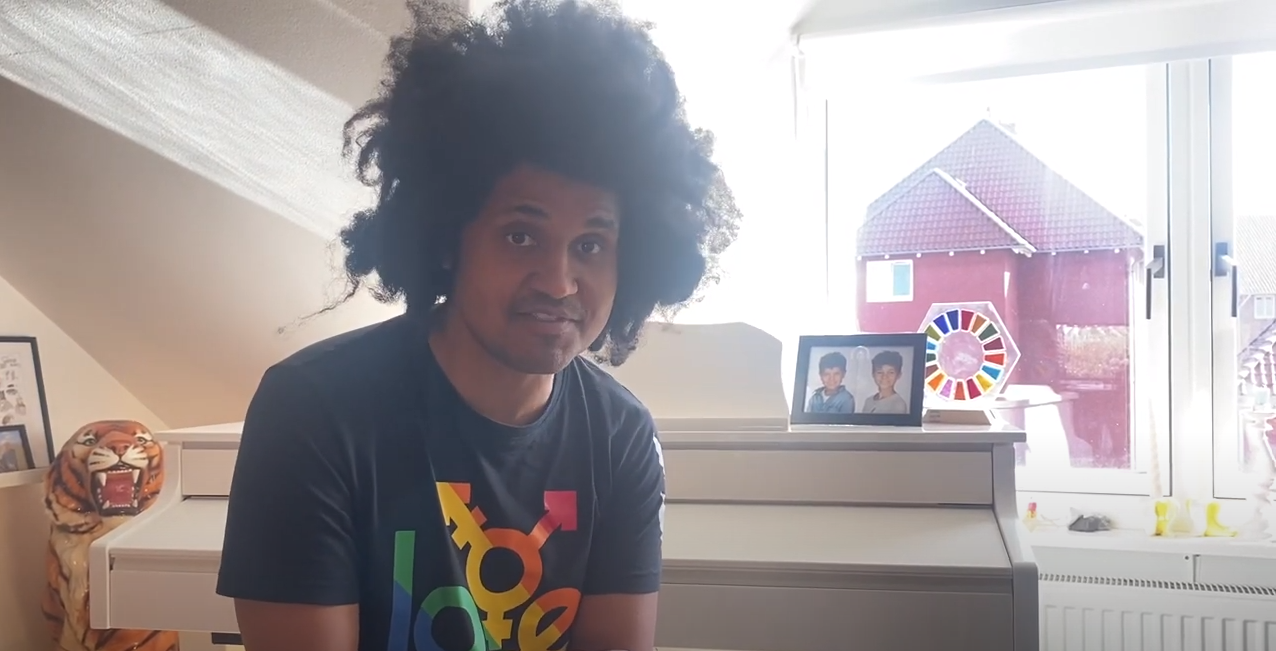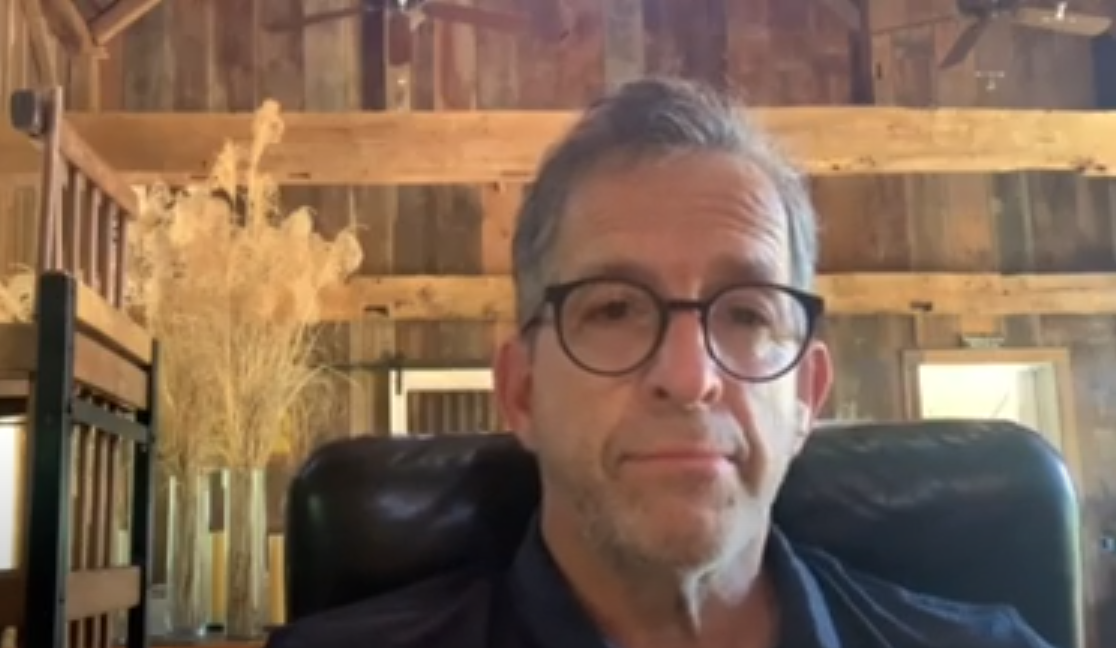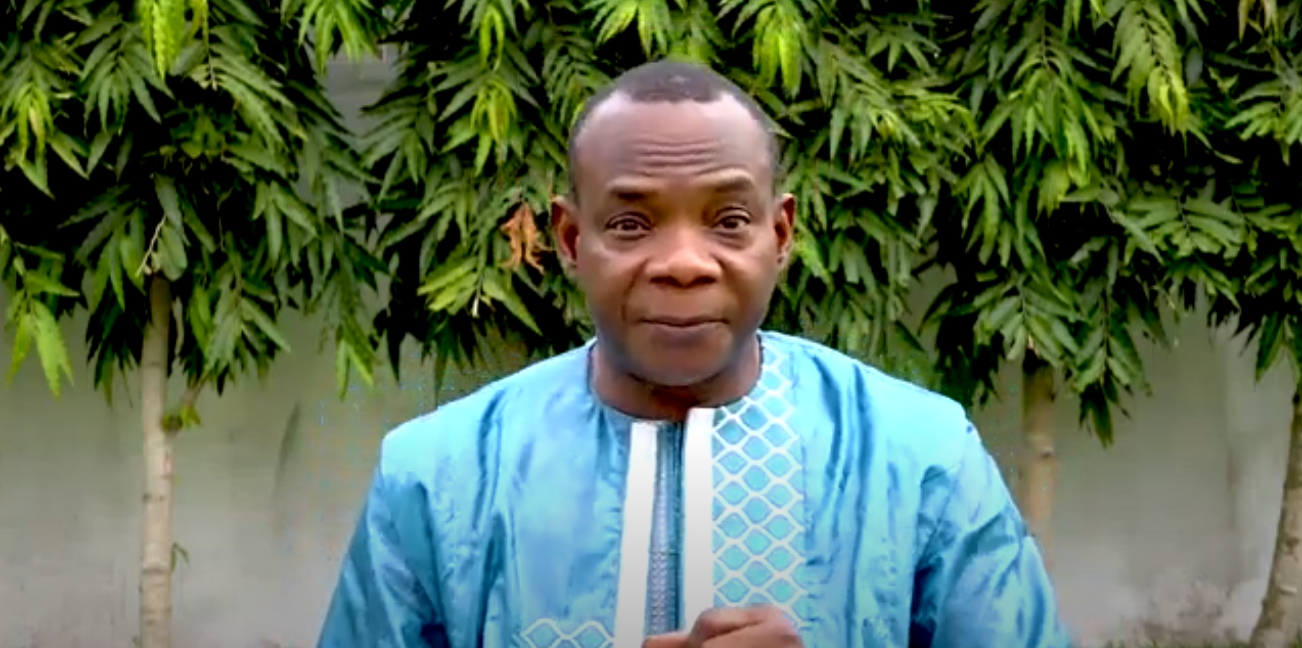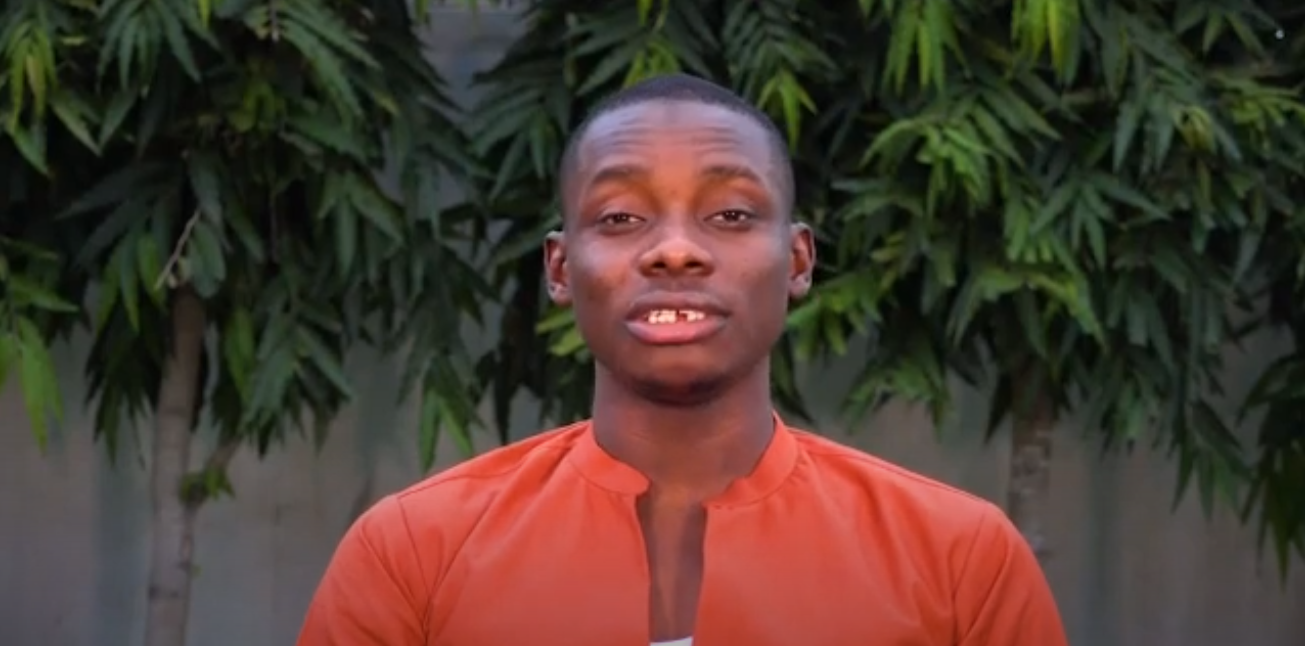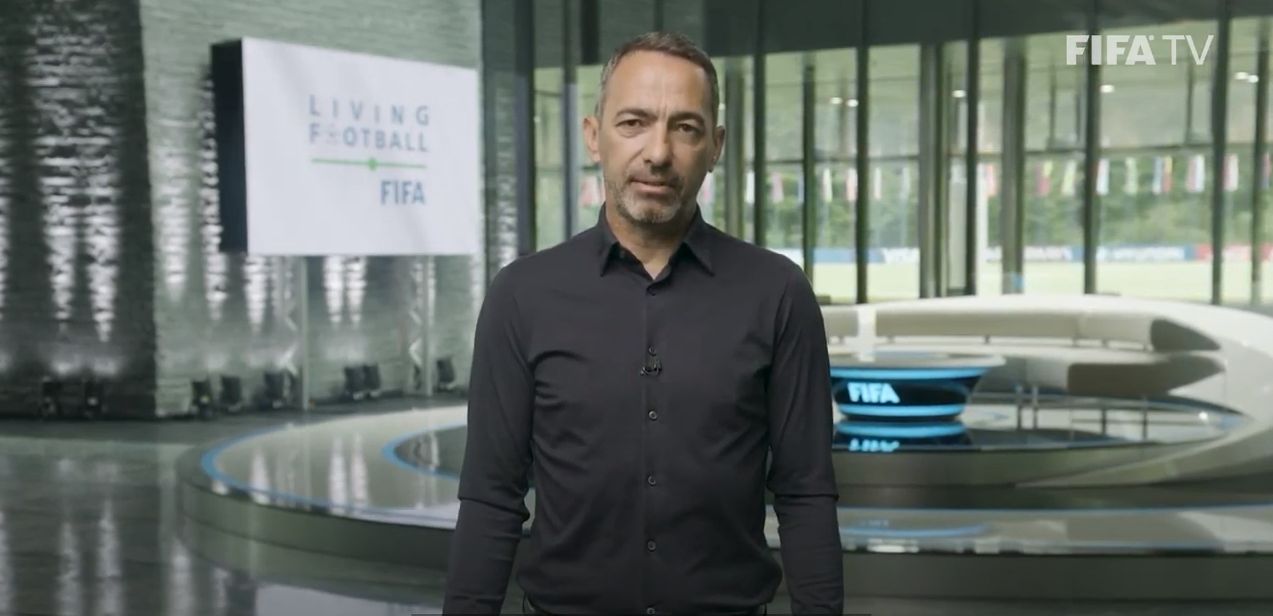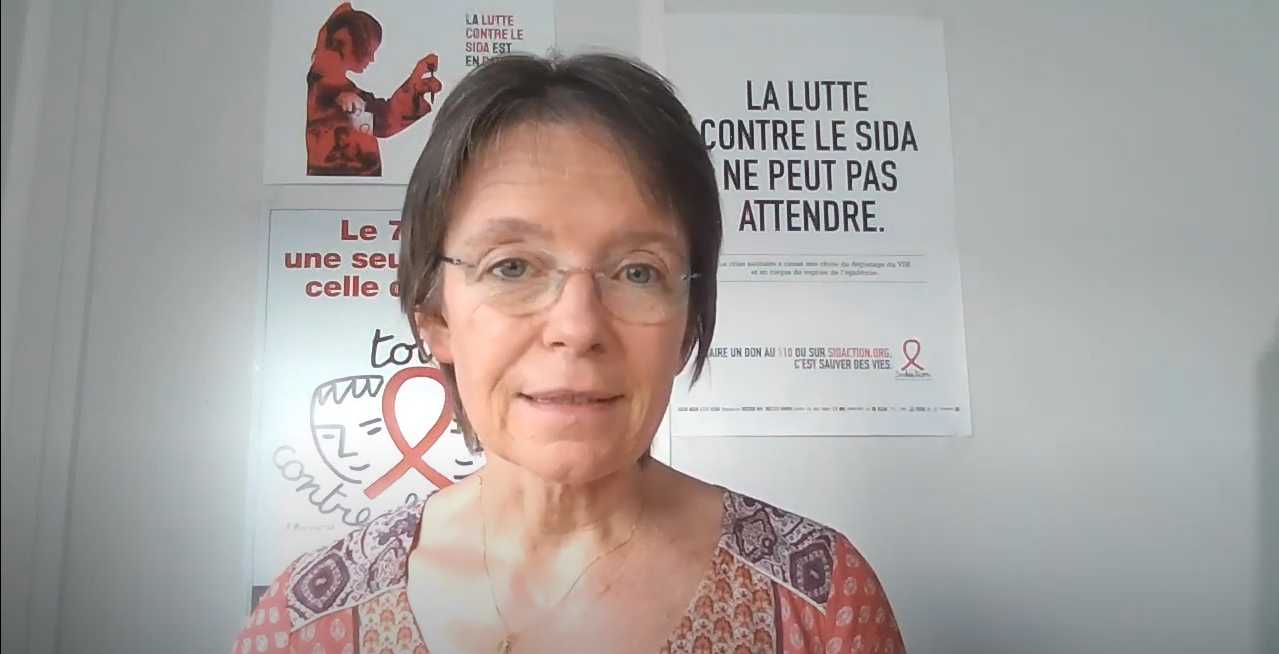AIDS remains one of the deadliest pandemics of modern times. But, with the tools and knowledge we have, we can end AIDS—if we address the inequalities driving the HIV pandemic.
This vision is reflected in the new Global AIDS strategy. The strategy sets ambitious targets for HIV prevention and treatment and calls for the elimination of stigma and discrimination. Meeting these targets by 2025 will put the world back on track to end AIDS as a public health threat by 2030.
On June 8-10 at the UN High-Level Meeting on HIV/AIDS, nearly every UN Member State supported the 2021 Political Declaration on Ending AIDS. This declaration includes the new targets—and highlights the need to stop AIDS everywhere, for everyone in order to stop it once, and for all.
Now it’s time to hold world leaders accountable for promises made and inspire them to commit the focus and funding needed to actualize the end of AIDS. In the film below, Thomas Buttenschoen, Winnie Byanyima, Kenneth Cole, Toumani and Sidiki Diabate, Youri Djorkaeff, David Furnish, Atiquah Hasiholan, Sir Elton John, Dr. Jose Ledesma, Ozaguin, Sheryl Lee Ralph, Princess Stephanie of Monaco, Stephanie Seydoux, Charlize Theron, Florence Thune, H.E. Madam Brigitte Touadera, Yousra, Pia Wurtzbach and Huang Xiaoming call on world leaders to keep their word.
Please join them by signing the letter to world leaders, below, and by sending your personal text or video message to world leaders on any social media platform using #EndInequalitiesEndAIDS.
LETTER
Forty years ago, the first cases of AIDS were reported. The early days of the AIDS epidemic were full of suffering, with few solutions and little hope. Since then, 77.5 million people have contracted HIV and nearly 35 million people have been lost to AIDS.
AIDS remains one of the deadliest pandemics of modern times.
The rate of new HIV infections is not following the trajectory the world promised. And, with COVID-19’s impact, there is risk AIDS becomes a resurgent pandemic. While COVID-19 has dominated the world’s attention, AIDS remains a global health emergency.
But, it doesn’t have to be. A never-ending HIV pandemic is not our fate. We have the tools to end AIDS as a public health threat by 2030. What is needed now is for the world to address the inequalities that fuel AIDS.
Significant strides in fighting HIV/AIDS have led to marked declines in HIV infections and AIDS-related deaths—in some places, and for some people. At least 40 countries are on track to achieve a 90% reduction in AIDS-related mortality by 2030. This remarkable progress is thanks to the generosity and bold leadership of many nations. We deeply appreciate the commitments, the funding, and the strength of many of your voices on this issue.
Such results offer hope, but the aggregate, global statistics mask a tragic reality: thanks to increasing inequality, millions around the world remain at risk for contracting HIV and dying of AIDS. Many are denied the human rights and access to healthcare services that could save their lives. Those most affected include: gay men and other men who have sex with men, people who inject drugs, female sex workers, transgender women, and people in prisons and other closed settings. These key populations, as well as adolescent girls and young women and children, are being left behind.
In 2020 alone, 690,000 people died of AIDS, and there were 1.5 million new HIV infections.
HIV is preventable and survivable—but only for those with access to evidence-based, comprehensive, rights-based prevention and treatment services.
For AIDS to truly be over, it has to be over for all.
A business-as-usual approach will fail. The programmes that have secured substantial progress to date will not enable us to finish the journey because the road is blocked. The evidence and analysis is clear: inequalities in power, status, rights and voice are driving the HIV pandemic. Inequalities kill.
That is why the new Global AIDS Strategy 2021-2026 is designed to address the inequalities that perpetuate the AIDS pandemic. We cannot be neutral on inequalities. We must be deliberate in confronting them if we are to end AIDS. The only alternative is a vicious cycle of injustice, illness and emergency. We cannot overcome our crises through minor adjustments or tinkering.
Between countries, a widening gap separates those who have prevention, treatment and care services and their rights respected and those who are excluded. We cannot end AIDS in only one country, or one continent. We can only end AIDS if we end it everywhere.
On June 8-10, at the United Nations General Assembly’s 2021 High-Level Meeting on AIDS, the majority of UN Member States supported a bold, new Political Declaration on Ending AIDS that contains ambitious new targets for HIV prevention, treatment and for ending stigma and discrimination. It also calls for decriminalizing HIV.
Meeting these goals by 2025 puts the world on track to end AIDS as a public health threat by 2030—part of the Sustainable Development Goals.
COVID-19 has transformed the landscape in which we deliver HIV prevention, treatment, and care. In some cases, it has made it more difficult to reach people, heightening their vulnerability to HIV. Millions of adolescent girls and young women have been forced out of school, increasing their risk of child marriage, teen pregnancy, and gender-based violence—which nearly doubles a girl’s risk of contracting HIV. Members of key populations face the threat of criminalization, undermining their ability to seek lifesaving care. COVID-19 has also led to life-saving innovations that are accelerating and improving HIV outreach. Multi-month dispensing of HIV medication and community-led delivery of HIV services have both increased.
And the decades of investment in the global AIDS response—in infrastructure, health systems, communities, and science—are paying dividends for COVID-19. For example, the public health and surveillance systems created for HIV are being used to fight COVID-19, and HIV vaccine research helped generate the mRNA technology used for COVID vaccines. The same laws, policies and strong, people-centred health services needed to end AIDS will also help the world overcome COVID-19, future-proof it against future pandemics and support inclusive economic growth and the human rights of all.
What we need to do to end AIDS will make the world a better place for all of us.
With the right and urgent actions now, global solidarity and robust funding we can again make significant progress against HIV/AIDS.
We thank you again for your bold and generous work on HIV in the past four decades and ask for your full commitment to ending AIDS as a public health threat by 2030 by addressing inequalities so we may meet the 2025 targets.
AIDS is not over, but it can be.
Whether we are remembered as promise-breakers or promise-keepers, as failures or victors, as the people who ended AIDS, or only as the people who could have ended AIDS, is up to us.
Let us win this fight, for all, together.
Sign the letter and join us in asking world leaders to fulfill their commitments to ending AIDS as a public health threat by 2030.
